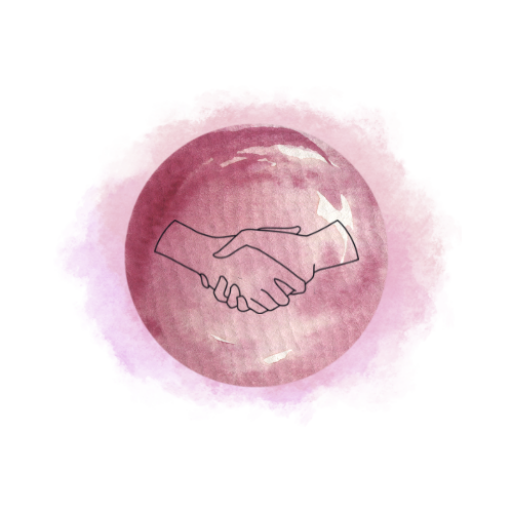Before we get into the details, let me tell you a short story that might feel familiar to you.
Fifty Years of Kindness
A couple had been married for 50 years. Each morning, the husband cut a slice of bread, buttered it, and gave his wife the crust. On their 50th anniversary, he finally explained:
“For fifty years, I gave you the crust because it’s my favorite part — and I wanted you to have the best.”
His wife burst into tears. For fifty years, she had quietly believed he was giving her the crust because he didn’t care enough to give her the softer middle.
This little story shows how easily misunderstandings and unspoken assumptions can shape a relationship for decades. What was meant as kindness was experienced as neglect — simply because it was never spoken about.
Everyday Conflicts
Now, think about your own life. Maybe it looks something like this:
- You fight about how to deal with your children’s tantrums — you prefer patient acceptance, he insists on clear rules and consequences.
- You fight about the household — who has done more, and which way is the right way to load the dishwasher.
- You fight about affection — you long for more closeness, but instead of asking directly, you say he probably loves his smartphone more than you. He reacts defensively, and suddenly a quiet evening ends with both of you sleeping in separate rooms.
Sound familiar? Many couples and families find themselves trapped in the same arguments, again and again. The topics may vary, but the underlying patterns remain.
Why Do Arguments Repeat?
Arguments repeat because they are not really about what they seem.
It may look like you fight about house chores, parenting strategies, or digital media use. But if you look deeper, other layers emerge:
- Attachment styles come to the surface: our need for closeness, our fear of rejection, our strategies to protect ourselves.
- Old wounds reappear: fears of being hurt, abandoned, not taken seriously.
- Family messages live on inside us:
- As a child, you hated when your parents set rigid rules without explanation. Now, when your partner insists on rules, it triggers that old helplessness.
- You grew up with the saying “Diligent hands will rule, but laziness ends in forced labor.” So you feel pressure to always be productive. When your partner seems more relaxed, you interpret it as lack of responsibility.
- Meanwhile, in his family the message might have been “Good things come to those who wait.” What feels like procrastination to you may feel like wisdom to him.
What looks like a fight about dishes is often a fight between two family histories, two sets of values, and two ways of coping with the world.

Basic and Secondary Capacities (Positive Psychotherapy)
In Positive and Transcultural Psychotherapy, we speak of basic and secondary capacities – inner strengths like love, trust, patience, justice, diligence, or reliability. Each person has some capacities that are more developed, while others may be less visible.
When arguments repeat, they often circle around these very capacities:
- One partner values order and rules, the other values patience and flexibility.
- One emphasizes achievement and productivity, the other enjoyment and relaxation.
Neither is “wrong” — these are simply different strengths that were shaped by childhood experiences and family messages. Sometimes, what once helped us survive as children (for example: being diligent, keeping control, avoiding conflict) can become rigid coping mechanisms in adulthood.
That’s why it is so important to look at these differences with curiosity and respect, instead of labeling your loved one as “lazy,” “controlling,” or “cold.” When you see these capacities as part of your partner’s survival story, it becomes easier to respond with empathy instead of blame.
Emotional First Aid for Fights
I know it is hard to stay calm and loving when you’re boiling with anger. But instead of letting the cycle run its course, pause and ask yourself:
- What is really triggering me right now?
- Do I want to win this fight, or do I want to feel close again?
- What do I wish for this relationship — in the long run?
Sometimes, in the middle of a fight, words are too many. Having a short mantra you both agree on can help you pause and see the bigger picture. For some couples it’s “We are on the same team.” For others, it’s “Connection over perfection.” The exact words matter less than the reminder: your relationship is bigger than this argument.
These small questions and reminders create a moment of choice: Do I continue the old script, or do I try something different? And every time you choose differently, you are already writing a new story for your relationship.
Here are some simple practices you can try as emotional first aid in heated moments:
- Find an anchor. Use your breath to calm your nervous system. Try the 4–7–8 method: breathe in for 4 seconds, hold for 7, then breathe out slowly for 8.
- Take a break. Agree on a signal like “pause” or “time-out,” and come back when both of you are calmer.
- Ground yourself. Feel your feet on the floor, or name five things you see in the room — this keeps you in the present moment.
- Try to lighten the atmosphere. Next time you fight, agree to add a funny element — maybe speak in silly voices or use a funny keyword to break the tension. (Important: make sure it feels respectful to both of you, not mocking.)
- Name your need. Instead of saying “You never listen,” try: “I need to feel heard right now.”
- Avoid escalation traps. Don’t interrupt each other, slam doors, or walk away without a word. These actions heighten the tension, leave the other person feeling hurt, and can trigger old wounds of rejection or abandonment. If you need space, say it clearly: “I need ten minutes to calm down, then I’ll come back.
- Release emotions in healthy ways afterwards. Even once the argument is over, your body might still be full of tension. Find a safe outlet: go for a run, dance, hit a pillow with a towel, cry, or simply walk outside to clear your head. Allowing emotions to move through your body prevents them from piling up inside and leaking into the next conflict.
These simple strategies act like emotional first aid — they don’t solve everything, but they stop the bleeding so you can return to the real conversation later.
Finding Balance in Your Relationship
In Positive Psychotherapy, conflicts are not seen as proof that something is broken, but as signals pointing to hidden strengths and unmet needs. The focus lies on hope, balance, and recognizing the good parts in yourself and in your relationship — even when it feels difficult. This perspective can open new ways forward and make repeating arguments easier to understand and transform.
If you’d like guided support, I offer a couple counseling and therapy sessions focused on finding patterns in your relationship and developing new ways of communication.
Feel free to contact me to learn more or book a first session:
📞 Phone & WhatsApp: 0160-91130624
📧 Email: info@ppt-therapie.de








